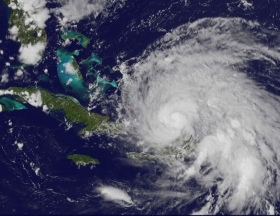 A sequence of devastating earthquakes and a large number of weather-related catastrophes made 2011 the costliest year ever in terms of natural catastrophe losses.
A sequence of devastating earthquakes and a large number of weather-related catastrophes made 2011 the costliest year ever in terms of natural catastrophe losses.
Estimates of around US$380 billion in global economic losses were nearly two-thirds higher than in 2005, the previous record year with losses of $220 billion. The earthquakes in Japan in March and New Zealand in February alone caused almost two-thirds of these losses. Insured losses of $105 billion also exceeded the 2005 record of $101 billion.
Torsten Jeworrek, a board member of Munich Re insurance group, said: “Thankfully, a sequence of severe natural catastrophes like last year’s is a very rare occurrence. We had to contend with events with return periods of once every 1,000 years or even higher at the locations concerned.
“But we are prepared for such extreme situations. It is the insurance industry’s task to cover extreme losses as well, to help society cope with such events and to learn from them in order to protect mankind better from these natural perils.”
With some 820 loss-relevant events, the figures for 2011 were in line with the average of the last ten years. 90% of the recorded natural catastrophes were weather-related — however, nearly two-thirds of economic losses and about half the insured losses stemmed from geophysical events, principally from the large earthquakes. Normally, it is the weather-related natural catastrophes that are the dominant loss drivers.
Source : clickgreen.org.uk




































